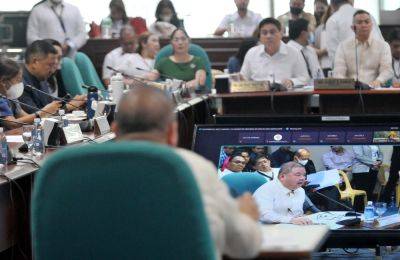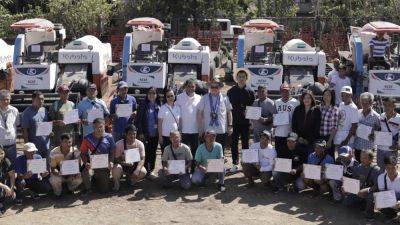Agri chief eyes better post-harvest, farm logistics to cut food cost
Agriculture Secretary Francisco Tiu Laurel, Jr. said improving post-harvest facilities to boost yield and enhance logistics in the farm sector are among the key measures to reduce the cost of agricultural products.
Laurel, who was allowed by senators to speak during their plenary session on the 2024 budget of the Department of Agriculture late Wednesday, outlined his priorities for the agriculture sector, which include expanding irrigation coverage, distributing better seeds to farmers, using appropriate fertilizers and technologies, and mechanizing farming to increase food production.
“By increasing production, we will hopefully lessen importation,” he said, mindful of the widening trade deficit as the country imports more agricultural products like rice, onions, and fish.
Data from the Philippine Statistics Authority showed the balance of trade in agricultural products in 2022 at a wider deficit of USD11.8 billion as the growth in Philippine farm imports was twice the growth of exports of agricultural produce. The trade deficit stood at USD8.89 billion in 2021 and USD6.38 billion in 2020.
By producing more locally, the Philippines will not only help local farmers increase their income; it will also preserve foreign exchange that could be invested in new businesses that would create more jobs. Agricultural imports last year totaled USD 19.3 billion, or around P1 trillion at the current exchange rate.
“We also plan to improve logistics to lower the cost of produce in the country,” Laurel stressed.
“After harvest, we need to process our produce to maximize yield. We need to bring them to market at the least possible cost. We must also lessen the [number of] times these products exchange hands by reducing middlemen,” he said.
Agriculture contributes around nine (9) percent to the domestic economy but accounts for one in every four jobs. Around 10 million farmers and fishermen are considered poor.
Laurel said modernizing agriculture, increasing output, and reducing importation should help realize President Ferdinand Marcos Jr.’s vision of lifting many of those who depend on agriculture out of poverty and ensuring a food-secure Philippines. ###







